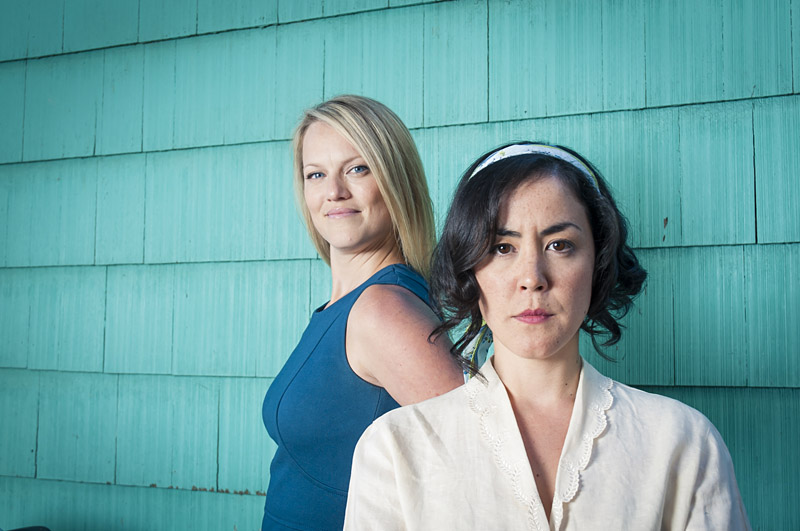An actor’s dream: You’re cast in a lead role that has you onstage for most of the show. The part requires you to exercise virtually every emotion in your repertoire at least once. Your character is intelligent and likable, but has enough flaws to keep you and the audience interested. You even get a few monologues.
For Rebecca Olson and Hana Lass, this exact scenario came to pass when Seattle playwright Paul Mullin wrote Ballard House Duet for them. It’s the inaugural production of the Custom Made Play Project, which matches playwrights with specific performers.* The tall, animated Olson seems 110 percent comfortable in the skin of Heidi, an ambitious, ethical, but manipulative woman who uses her charms to advance her career as a TV-show host. Lass plays Heidi’s born-again sister Holly, who for a week has been cleaning out their dead aunt’s junk-filled Ballard home. When Heidi finally arrives to “help,” she announces she’s brought a crew to film the mess (just like on the A&E show Hoarders); then she complains the place is “no longer enough of a dump for my purposes.”
The sisters bicker and reconcile many times, interspersed with scenes from their childhood. As children, the girls sing raucously and take turns interacting with their creepy unseen Uncle Ken. They also grapple with drugs, boys, and disease. Olson embodies Heidi as the sister from hell—gorgeous, privileged, and unwittingly condescending, magnetically drawing all eyes to her. As the less-glamorous, God-smitten Holly, Lass mainly exhibits fatigue and disappointment, her slack face shunning attention. Clearly the two are designed as foils, but Lass gets the short end of the stick. Her Holly is consigned to blocking and reacting to Heidi’s energetic initiatives.
Though not much actually happens onstage, Mullin packs heaps of detail into the conversations and monologues—betrayal, men, sibling rivalry, and a genetic curse that only one sister has inherited.
*Correction: An earlier version of this review misidentified Olson and Lass as Washington Ensemble Theatre members. WET is providing a venue for this Custom Made Play Project production as part of its Ensemble Presents series, but is not otherwise linked to it.









